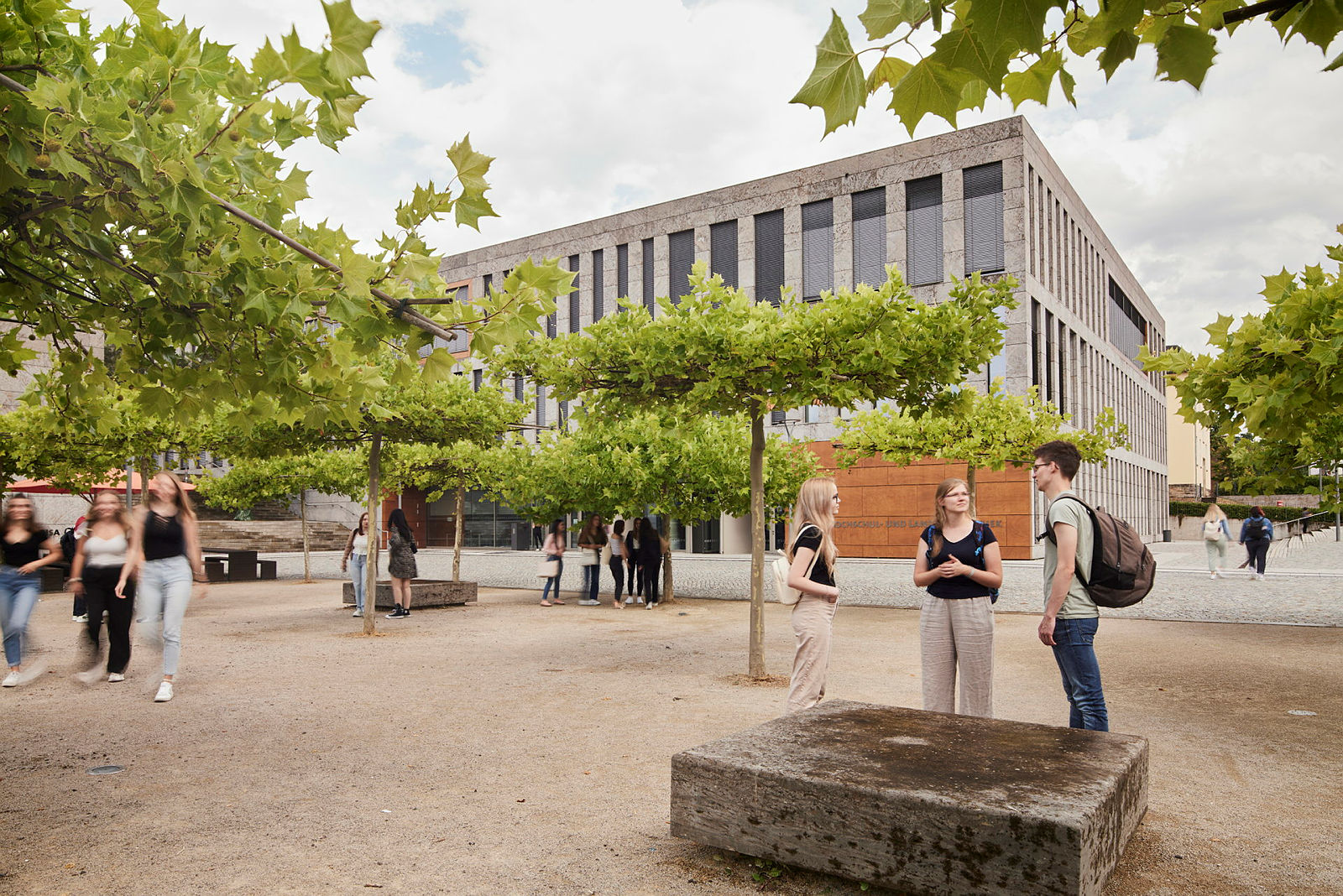Did you know that traditional English-speaking countries like the UK, the US, Australia, and Canada are no longer the sole destinations for quality international education? According to the “Mapping English-taught Programmes Worldwide” report, there is a 22% increase in on-campus English-taught Bachelor’s and Master’s programmes being delivered globally, with 40,786 English-taught programmes now available outside major English-speaking countries.
Europe is taking the lead, and Germany is a standout choice. It ranks 2nd in Europe for on-campus English-taught degree programmes, with 2,305 programmes currently available. Some of the best in the lineup belong to Fulda University of Applied Sciences. Its practice-oriented approach and international profile cater to various student needs, as shown by learners like Noel Baggio Kengue Tanguetio.
Innovative programmes for tomorrow’s leaders
Driven by his interest in biochemistry, organic chemistry, and chemistry, Tanguetio sought a programme that offered more than theoretical knowledge. His search led him to the Food Technology BSc degree at Fulda University. It provides a unique approach to food engineering, examining the entire food chain from technological, economic, and scientific perspectives.
Three factors drew Tanguetio to the university: no tuition fees, English instruction, and courses that matched his interests. “I found a programme taught in a language I enjoy and focus on subjects that excite me. I thought, why not? This could be interesting. Let’s give it a try!” And he has no regrets.
Fulda University’s accessible education creates a welcoming space for students to focus on their studies without financial stress. Tanguetio seamlessly transitioned to studying in English and found the support he needed among the faculty. He particularly enjoyed exploring the principle of scientific research with Sarah Goldbach, thanks to her “energetic and welcoming teaching style.”
Besides the Food Technology (Bachelor), Fulda University offers various other undergraduate programmes. The Industrial Engineering Food BSc trains students in everything from product development to preservation techniques, while the Industrial Biotechnology BSc covers the basics of science and engineering with the option to specialise in fields like pharmaceutical and environmental biotech.
The only English-taught programme of its kind in Germany, the Global Health BSc dives into how politics, society, and the environment shape health outcomes worldwide. Meanwhile, those with broad technical interests should opt for the Science and Engineering BSc/BEng, which can give you a taste of applied computer science, electrical engineering, and food technology.
But if you’re looking to drive organisational growth across the world, go for the International Business and Management BSc. This qualification combines economics, business, and language learning to prepare you for a globally connected future.
If you’ve already achieved a foundational qualification but are looking to take your career to the next level, pursue one of Fulda’s postgraduate degrees instead:
- International Management MSc
- Human Rights Studies in Politics, Law and Society MA
- Intercultural Communication and European Studies MA
- Global Software Development MSc
- Data Science MSc
All programmes are delivered by a dedicated faculty with extensive experience in teaching English-taught programmes. Tanguetio shares, “The saying ‘there will always be someone to take care of you’ has never felt truer than it does here. The teachers are super approachable and always ready to help when we face challenges, whether they’re academic or administrative.”

From student communities to the student slow food project, you will have many opportunities to network with other students. Source: Fulda University of Applied Sciences
Building key skills and connections
Experiential learning is a cornerstone of education at Fulda University, with opportunities like team projects, research initiatives, and a Master’s thesis. For students like Tanguetio, these experiences have been transformative.
“In 2024, I participated in the spring school offered by the Engaged and Entrepreneurial European University (E³UDRES²), where I engaged in warehouse work for the first time. From there, I completed preparatory courses in Chemistry and Mathematics, which renewed my interest in teaching. I later became involved as an academic mentor in the Food Technology department, helping out with mathematics tutorials.”
Fulda University launches careers through events and extracurricular activities as well. “We’ve visited a food company to learn about its production process and the challenges it encounters,” says Tanguetio. “Plus, the buddy programme and Christmas party were perfect opportunities to step away from studies and enjoy quality moments with friends.”
Comprehensive career support is available, too. “The study coordinator acts as a primary contact for academic inquiries, while the International Office supports international students with visa questions, the first arrival, housing, and social events,” says Prof. Dr. Klingert.
With a solid foundation, graduates are well-prepared to excel in their careers. Reflecting on his experience, Tanguetio notes, “Compared to my previous studies, I now have a complete understanding of my field, backed by practical skills and continuous support from faculty and staff.” The inclusive and growth-focused environment at Fulda has even inspired him to consider staying on for a master’s degree.
Follow Fulda University on Facebook, Instagram, YouTube, and LinkedIn











